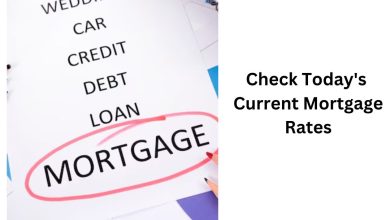First-Time Home Buyer Mortgage

First-Time Home Buyer Mortgage: The Basics
First-Time Home Buyer Mortgage. Buying your first home is a big deal, but it can be overwhelming when it comes to the mortgage part. This will walk you through the first-time home buyer mortgage basics so you can make informed decisions and get to homeownership.
First-Time Home Buyer Mortgage
What is a First-Time Home Buyer Mortgage?
A first-time home buyer mortgage is a home loan for people buying their first home. These mortgages often come with special perks like lower down payments, lower interest rates, or government programs to make homeownership more attainable.
First-Time Home Buyer Mortgage Features
- Lower Down Payments: 3% down or less.
- Better Interest Rates: Lower rates to help with monthly payments.
- Assistance Programs: State and federal programs offer grants, tax credits, and more.
Benefits of First-Time Home Buyer Mortgages
1. Affordability
Programs for people with little to no savings so they can buy a home without having to put down a lot of money upfront.
2. Low Credit Scores
Some lenders will loan to people with lower credit scores so more people can be homeowners.
3. Financial Perks
Buyers get tax breaks, reduced closing costs, and down payment assistance.
First-Time Home Buyer Mortgages
1. Conventional Mortgages
- A higher credit score is required.
- Competitive rates and flexibility.
2. FHA Loans (Federal Housing Administration)
- Lower credit score and down payment required.
- Most popular among first-time buyers due to lenient qualification requirements.
3. VA Loans (Veterans Affairs)
- For eligible military, veterans and their families.
- No down payment and no private mortgage insurance (PMI).
4. USDA Loans (U.S. Department of Agriculture)
- For rural and suburban areas.
- Zero down.
First-Time Home Buyer Mortgage
1. What is a First Time Home Buyer
You can be a first-time buyer even if you’ve owned a home before, as long as you haven’t owned a home in the last 3 years.
2. Check Your Credit Score
Lenders require:
- FHA: 580 (or 500 with higher down payment)
- Conventional: 620 or higher
- VA/USDA: Varies by lender
3. Save for a Down Payment
Not all programs have low or no down payment, having savings can help with your loan terms.
4. Get Preapproved
A preapproval shows sellers you’re serious and helps you determine your budget.
How to Apply for First-Time Home Buyer Mortgage
1. Budget
Figure out how much house you can afford by adding up your income, expenses, and mortgage payments.
2. Choose Your Loan
Research different loan types and programs to find one that’s right for you.
3. Documents
Lenders will need:
- Proof of income (pay stubs, tax returns)
- Credit history
- Employment verification
- Debt-to-income (DTI) ratio
4. Work with a Mortgage Lender
Shop around for lenders with competitive rates and first-time buyer programs.
5. Close the Loan
Once approved, review the terms, pay closing costs, and sign the paperwork to complete the purchase.
First-Time Home Buyer Programs
1. Federal Programs
- FHA Loans: Government-backed and lower down payments.
- Good Neighbor Next Door Program: For teachers, firefighters, and law enforcement.
2. State and Local Programs
Many states have grants and loans for down payment and closing costs.
3. Employer Programs
Some employers offer housing benefits as part of their employee benefits.
Common Obstacles and How to Overcome Them
1. High Prices
- Solution: Look for homes in affordable areas or fixer-uppers.
2. Credit Score
- Solution: Work on your credit score before applying.
3. Saving for a Down Payment
- Solution: Check out down payment assistance programs or low down payment loans.
First Time Home Buyer Tips
- Start Early The sooner you start saving the easier it will be to cover down payments and closing costs.
- Fix Your Credit Pay off debts and don’t apply for new credit to improve your score.
- Research Neighborhoods Pick a location that fits your lifestyle and budget.
- Get Expert Help Work with a real estate agent and a mortgage lender.
FAQs
1. What is a first-time home buyer?
A first-time buyer is someone who hasn’t owned a home in the last 3 years. Some programs also include those who have never owned a home or are single parents or displaced homemakers.
2. How much should I save for a down payment?
Some programs allow 3% down but saving 20% can avoid PMI and lower your monthly payment.
3. What is PMI?
PMI is a fee for loans less than 20% down. It’s insurance on the lender if you default on the loan.
4. Can I qualify with bad credit?
Yes, FHA loans are for buyers with lower credit scores.
5. Are there other costs I should be aware of?
Closing costs, property taxes, and maintenance expenses add up. Budget for those in addition to your down payment and monthly mortgage payment.
6. How do I choose the right mortgage for me?
Consider your financial situation, credit score, and long-term goals. Talk to a mortgage advisor.
End
Buying your first home is a big deal and understanding the mortgage process is key to making smart decisions. Research first-time home buyer programs, get financially ready, and seek expert advice and you’ll be on your way. Remember to research your options, plan smart, and use what’s available to you.


